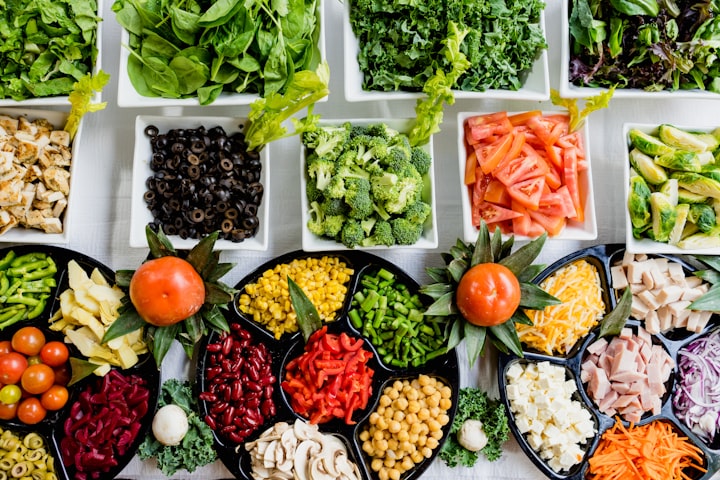These Foods Can Protect You Against Cancer!
Eating a balanced diet that includes fruits, vegetables, whole grains, lean meats, fish, nuts, seeds, beans, and legumes can help reduce your risk of developing certain types of cancer.
Cancer is a disease that occurs when cells in your body start behaving abnormally. This can happen when DNA inside the cell changes. When this happens, the normal function of the cell becomes disrupted and causes it to grow out of control. Cancerous cells are able to reproduce at a much faster rate than healthy cells. They can invade other parts of the body and cause damage to organs and tissues.
The most common types of cancer include breast cancer, prostate cancer, skin cancer, lung cancer, colon cancer, stomach cancer, liver cancer, brain cancer, blood cancers, bone cancer, cervical cancer, thyroid cancer, ovarian cancer, bladder cancer, kidney cancer, testicular cancer, head & neck cancer, leukemia, lymphoma, multiple myeloma, and others.
How to prevent cancer?
Smoking tobacco products can cause many health problems including lung cancer, heart disease, stroke, emphysema, chronic bronchitis, and mouth cancer. Tobacco use has been linked to nearly every type of cancer, including cancers of the head and neck, esophagus, stomach, colon, rectum, liver, pancreas, bladder, kidney, cervix, and ovary.
Eating a balanced diet that includes fruits, vegetables, whole grains, lean meats, fish, nuts, seeds, beans, and legumes can help reduce your risk of developing certain types of cancer. Foods high in fiber are associated with lower rates of some cancers, while foods rich in antioxidants may protect against others.
Regular physical activity helps keep your weight under control, reduces stress, boosts energy levels, and strengthens muscles. Exercise also lowers blood pressure and cholesterol, reduces the risk of diabetes, and can even improve sleep quality.
1. Salmon
Salmon contains high levels of omega-3 fatty acids that have been shown to prevent cancer cells from multiplying. This anti-cancer effect has been proven through laboratory tests and human clinical trials. A diet rich in salmon can help reduce your risk of developing colon cancer, breast cancer, prostate cancer, lung cancer, stomach cancer, ovarian cancer, leukemia, lymphoma, multiple myeloma, and other cancers.
2. Beans
Beans are packed with fiber, protein, and complex carbohydrates. They're also loaded with antioxidants, including flavonoids, which have been proven to fight off free radicals. These free radicals can cause DNA damage, which may lead to cancer. Eating beans regularly can lower your risk of several types of cancer, including bladder, colorectal, endometrial, esophageal, gastric, kidney, liver, oral cavity, pancreatic, pharynx, rectum, and stomach cancers.
3. Broccoli
Broccoli is a member of the cruciferous vegetable family, which includes cauliflower, cabbage, kale, collard greens, arugula, mustard greens, radishes, turnips, and rutabaga. Cruciferous vegetables contain compounds called glucosinolates, which give broccoli its signature taste and smell. Glucosinolates have been linked to reducing the risk of cancer. One study showed that people who ate three servings of broccoli per week had a 40 percent reduced risk of colon cancer compared to those who didn't eat any at all. Researchers believe this protective effect comes from sulforaphane, a chemical compound that gives broccoli its pungent odor and flavor.
4. Blueberries
Blueberries are loaded with antioxidants that help fight cancer-causing free radicals. Antioxidants can help prevent damage from oxygen molecules called reactive oxygen species (ROS). These ROS can cause DNA mutations and contribute to cancerous tumors. Blueberries have been shown to inhibit tumor growth in mice. They may also help protect against certain types of cancers.
5. Brussels Sprouts
Brussels sprouts contain a type of antioxidant known as sulforaphane, which boosts the body’s detoxification systems. This means that they can help reduce inflammation throughout the body. Inflammation is linked to many diseases, including heart disease, diabetes, Alzheimer's, Parkinson's, and even some forms of cancer. Sulforaphane also protects cells from oxidative stress, which is caused by exposure to toxins. Oxidative stress leads to the formation of free radicals, which are highly reactive chemicals that cause cellular damage. Free radicals can lead to premature aging and various degenerative diseases.
6. Avocados

Avocados are rich in monounsaturated fats that have been shown to help prevent cancer cells from spreading throughout the body. A study conducted at the University of California found that women who eat avocados twice a week reduced their risk of breast cancer by 40 percent. Eating just half an avocado daily can provide over 10 percent of your recommended daily intake of healthy fat.
About the Creator
Writer Tiger
I write articles on Psychology, Technology, Blockchain and information. Most of my time is spent researching and getting the right information.







Comments
There are no comments for this story
Be the first to respond and start the conversation.